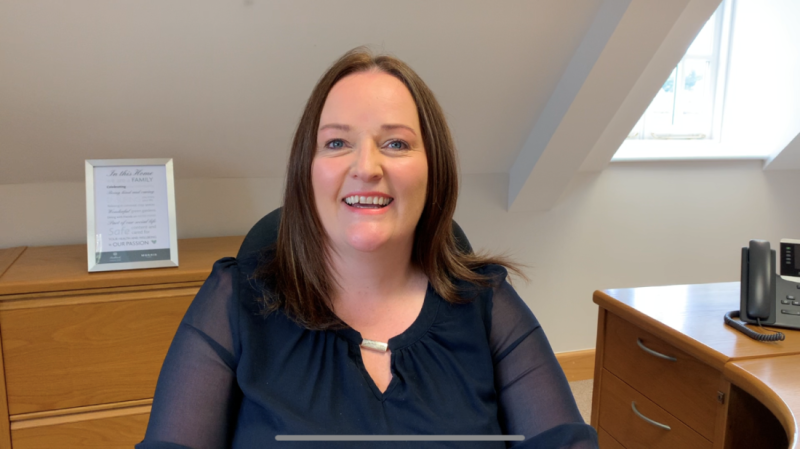What key digital technology shortcomings did the pandemic expose in the adult social care sector?
The biggest challenge was constantly reviewing and assessing the care you are giving without going in the home, particularly when all the key information is held on paper. Homes were inaccessible to anyone not providing essential frontline care. Reviewing paper records remotely was not possible.
There was a heightened level of anxiety and stress among residents’ families and paper records couldn’t be seen to offer the reassurance that family and friends were looking for in relation to how their loved ones were being supported and cared for during this unprecedented period.
Pandemic-related staffing pressures meant that we needed more direct contact time with residents and anything we could do to take the pressure off the frontline teams to free them up from writing notes and records was essential. We estimate that putting in electronic care plans and digitalisation has saved all our carers between 4-6 hours each week as they are no longer writing up health care records and observations. This is precious time they can directly spend with residents.
What technological changes have you introduced to your organisation, consequently?
As many as possible, but there are a number of highlights. Electronic Care Planning has saved nursing and care teams almost 7,000 hours on average for each care home over the last year and our Electronic Medication Administration Records (eMAR) system has reduced medication errors by 78 per cent since it was rolled out to all homes.
To ensure our homes are up to standard, the use of FaultFixers maintenance software has ensured 819 faults in our homes were reported which were responded to, on average, within a day.
For enquiries about our care, using the ‘Found’ CRM system, Morris Care recorded over 436 enquiries which have been progressed and resulted in a record 137 residents moving in to receive care.
It’s not just the care that is important, however. For our employees we provide them with access to, Relias, an engaging online learning and development system that has over 500 modules to provide flexible learning on an app at a time to suit them. Furthermore, an online recognition and reward scheme is helping to celebrate staff excellence. It provides a dedicated portal with discounts on a wide range of well-known brands.
Have those changes improved the efficiency and care delivery in your organisation?
It has transformed the way we work and care for residents, we have more time for our carers to do the part of the job they enjoy, engaging and having fun with our residents. We have seen a significant improvement in our resident satisfaction survey year on year that demonstrates this.
We have seen a significant improvement in our resident satisfaction survey year on year that demonstrates this
We have access to all the care plans, medications records and audit tools as well as logging all our repairs and maintenance issues on handheld devices and laptops; we can see them at a glance alongside any issues in each home. The digital programme also has the added benefit of providing a higher quality of data and reporting. We can ask more varied questions to ensure all our resident have their needs personalised to them.
Is further digital transformation required to deliver the long-term sustainability of the sector?
Yes, we have only just begun. We want to open up all our electronic systems to appropriate family, friends and professionals while providing real time data so they and regulators can see an immediate synopsis of how an individual is doing 24/7. In the future I would hope that social care and the NHS can provide seamless sharing of all relevant health and medical information to allow seamless care and treatment.
What key obstacles stand in the way of other local authorities and care groups delivering the digital transformation necessary?
Courage, time, and money – there has been little policy, tax benefits or financial support to those in the social care sector to implement the digital changes. We all need to take the leap of faith, think the unthinkable and have the confidence that we can do this. Care and technology are relatively new, but our workforce and their adaptability will surprise you. Once you start you will never look back.



